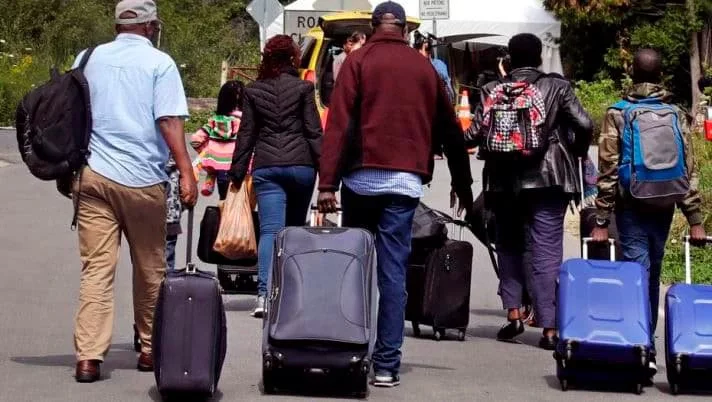
In a significant event underscoring the complex migration dynamics between Africa and Europe, Libya has taken decisive action by stopping more than 300 Nigerians attempting to reach Europe and sending them back to Nigeria.
This move, coordinated by the International Organisation for Migration (IOM), highlights Libya's role as a critical transit point for migrants driven by the dream of a better life in Europe but faced with perilous journeys across the Mediterranean.
The journey from Libya to Europe is a dangerous hope
Libya's strategic position on North Africa's Mediterranean coast has made it a primary departure point for migrants, especially from other parts of Africa, aiming to enter Europe. The country's prolonged conflict has not only devastated its own infrastructure and social fabric but also created an environment where migrants, seeking escape from economic hardship and instability in their home countries, risk dangerous sea voyages.
The story of over 300 Nigerians intercepted by Libyan authorities as they sought passage to Europe reflects the dire circumstances and the lengths to which individuals will go in pursuit of hope and opportunity.
Libya's response to irregular migration
In a recent operation, Libya demonstrated its commitment to managing migration flows within its borders. The Libyan migration agency, under the direction of Mohamad Baredaa, announced the deportation of 320 Nigerians, including men, women, and children, who were stranded and attempting to reach Europe.
These deportations were carried out from Mitiga Airport in Tripoli and Benina Airport in Benghazi, showcasing Libya's efforts to coordinate with international bodies like the IOM to address the challenges of irregular migration. This action is part of a broader agreement among Libya's rival administrations to establish a Tripoli-based anti-immigration body focused on the deportation of foreigners residing in the country illegally.
The plight of migrants in Libya
The situation of migrants in Libya is a humanitarian concern, with more than 700,000 migrants believed to be within the country, according to the IOM. These individuals often find themselves in precarious conditions, vulnerable to exploitation, and in many cases, detained in overcrowded facilities.
The decision to deport over 300 Nigerians is a stark reminder of the complex issues surrounding migration in Libya and the broader Mediterranean region. It also underscores the need for international cooperation and comprehensive migration management policies that respect human rights and offer legal pathways for migration.
Despite the risks and challenges, many Nigerians continue to seek ways to leave their country, driven by the "Japa" phenomenon - a colloquial term referring to the desire to migrate for better opportunities amid economic downturns and naira devaluation in Nigeria.
The actions taken by Libya, while addressing issues of irregular migration, highlight the ongoing struggles faced by many Africans in search of stability, safety, and prosperity in Europe.
















Comments